May 2023 in “CRC Press eBooks” Liposomes can improve hair care and treat hair issues effectively.
 May 2023 in “Brazilian Journal of Animal and Environmental Research”
May 2023 in “Brazilian Journal of Animal and Environmental Research” Photobiomodulation effectively treats hair loss in dogs with black hair follicular dysplasia.
 April 2023 in “Research Square (Research Square)”
April 2023 in “Research Square (Research Square)” The follicular unit extraction technique is a successful treatment for male hair loss with over 90% hair survival rate and less than 6% complications.
 April 2023 in “Journal of Investigative Dermatology”
April 2023 in “Journal of Investigative Dermatology” Mutations in the SHH pathway in certain skin cells can cause skin tumors and abnormal hair growth.
 April 2023 in “The journal of investigative dermatology/Journal of investigative dermatology”
April 2023 in “The journal of investigative dermatology/Journal of investigative dermatology” The protein p21 is more abundant in normal skin cells than in melanoma cells and may help protect against melanoma, with UVB light affecting its levels.
 April 2023 in “Rossijskij žurnal kožnyh i veneričeskih boleznej”
April 2023 in “Rossijskij žurnal kožnyh i veneričeskih boleznej” The document concludes that four related skin diseases, which often occur together, are caused by blocked hair follicles.
 January 2023 in “Skin appendage disorders”
January 2023 in “Skin appendage disorders” Hair loss can occur in the area where hair was taken for a transplant.

Follicular unit extraction is safe and effective without bupivacaine and nerve blocks when using lignocaine with adrenaline.
 November 2022 in “The journal of investigative dermatology/Journal of investigative dermatology”
November 2022 in “The journal of investigative dermatology/Journal of investigative dermatology” The research identified specific genes that are active in the cells crucial for hair growth.
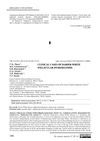 October 2022 in “Medičnì perspektivi”
October 2022 in “Medičnì perspektivi” Darier-White disease causes skin and nail issues, starts around age 20, worsens until 40-50, and has poor treatment options.
 August 2022 in “Journal of Cosmetic Dermatology”
August 2022 in “Journal of Cosmetic Dermatology” A new classification for depth control in hair restoration surgery was proposed, dividing it into three grades based on the depth required for successful graft extraction.
 July 2022 in “The journal of investigative dermatology/Journal of investigative dermatology”
July 2022 in “The journal of investigative dermatology/Journal of investigative dermatology” Targeting impaired Nrf2 signaling might help treat hidradenitis suppurativa early on.
 July 2022 in “Journal of Cosmetic Dermatology”
July 2022 in “Journal of Cosmetic Dermatology” Adding platelet rich plasma to follicular unit extraction doesn't significantly improve hair graft survival in cicatricial alopecia treatment.
 June 2022 in “Ain Shams medical journal”
June 2022 in “Ain Shams medical journal” Adding platelet rich plasma to hair transplant surgery leads to better results and more patient satisfaction.
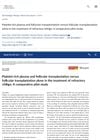 May 2022 in “Dermatologic therapy”
May 2022 in “Dermatologic therapy” Combining PRP with follicular transplantation improves vitiligo treatment better than follicular transplantation alone.
March 2022 in “Veterinary dermatology” A one-year-old cat had multiple benign skin tumors similar to those known in humans.
 November 2021 in “Dermatologic Surgery”
November 2021 in “Dermatologic Surgery” The technique removes sweat glands effectively.
 August 2021 in “Al-Azhar International Medical Journal (Print)”
August 2021 in “Al-Azhar International Medical Journal (Print)” Hair transplantation is effective for treating cicatricial alopecia with fewer anesthesia risks, scars, and recovery time.
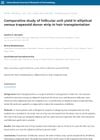 March 2021 in “International Journal of Research in Dermatology”
March 2021 in “International Journal of Research in Dermatology” Trapezoid donor strips give more hair follicles than elliptical ones in hair transplants.
 March 2021 in “Indian Journal of Dermatology”
March 2021 in “Indian Journal of Dermatology” A man unhappy with his old hair restoration got a new, natural-looking hairline using a combination of follicular unit extraction and punch graft reduction.
January 2021 in “Hair therapy & transplantation” New hair transplant methods now look more natural.
 June 2020 in “Al-Azhar International Medical Journal (Print)”
June 2020 in “Al-Azhar International Medical Journal (Print)” Adding Platelet-rich plasma (PRP) to hair transplants can speed up recovery and increase hair density, but it doesn't help with androgenic alopecia.
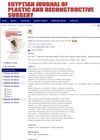 April 2020 in “The Egyptian Journal of Plastic and Reconstructive Surgery”
April 2020 in “The Egyptian Journal of Plastic and Reconstructive Surgery” Both follicular unit extraction and scalp expanders effectively treat secondary cicatricial alopecia, with scalp expanders leading to quicker and denser hair growth.
January 2020 in “Hair therapy & transplantation” FUE is a modern hair transplant method that avoids large scars and is good for short hair.
 January 2020 in “Hair transplant forum international”
January 2020 in “Hair transplant forum international” The type of previous hair restoration surgery might affect the success of a later one, with strip harvesting possibly leading to fewer damaged hair follicles.
The right balance of Myo-Inositol to D-Chiro-Inositol in follicular fluid is crucial for good egg and embryo quality.
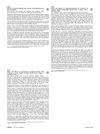
The robotic system for hair restoration surgery works well, giving similar results to manual techniques after 9 months.
 January 2019 in “Srpski Arhiv Za Celokupno Lekarstvo”
January 2019 in “Srpski Arhiv Za Celokupno Lekarstvo” The technique improved hair transplant success and patient satisfaction by matching hair growth direction.
 July 2018 in “Hair transplant forum international”
July 2018 in “Hair transplant forum international” To prevent thinning in the donor area, harvest less than 50% of the original hair density in repeat hair transplants.
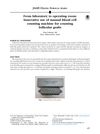 January 2018 in “Journal of The American Academy of Dermatology”
January 2018 in “Journal of The American Academy of Dermatology” A manual blood cell counter was effectively used to count hair follicles during surgery, being user-friendly and cost-effective but limited by a three-digit display.
























